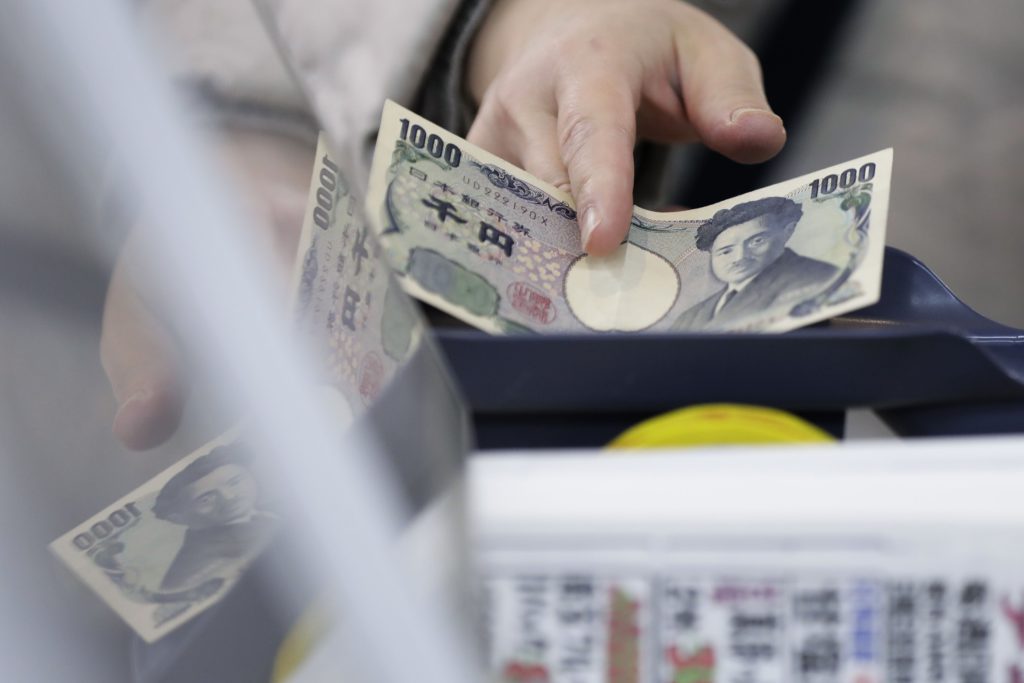(Bloomberg) — The yen dropped to its weakest level against the dollar in five years, as global growth optimism triggered a spike in U.S. Treasury yields and undermined the appeal of haven assets.
The currency dropped as much as 0.4% to 115.82 per dollar on Tuesday, the weakest since January 2017. It follows a 10% slump last year, the biggest annual drop in seven years.
“The transition to a more normal global economy in 2022 will lead to a normalization of monetary policy by several central banks, including the Fed” and that will weigh on the yen, said David Forrester, senior FX strategist at Credit Agricole CIB in Hong Kong. “We forecast dollar-yen to reach 118 by mid-2022.”
The yen was the worst-performing Group-of-10 currency last year as the Bank of Japan’s dovish policy increasingly diverged from peers, who have signaled normalization from pandemic stimulus. Funds from Morgan Stanley to JPMorgan Asset Management have advocated selling the currency as yield differentials widen.
Overnight-index swaps suggest the Federal Reserve will raise the benchmark rate three times this year amid the fastest inflation in four decades. The BOJ, however, is expected to leave the policy rate unchanged in 2022 with Governor Haruhiko Kuroda reiterating that the central bank will continue to take appropriate policy steps.
Treasury 10-year yields surged 12 basis points on Monday to close at 1.63%. Hedge funds have been short yen since February last year though they have trimmed the positions by almost two thirds in the past two months as it weakened, data from the Commodity Futures Trading Commission showed.
Even some of Japan’s most conservative investors, life insurers, are betting on a stronger dollar. Nine of the biggest such companies collectively boosted holdings of greenback-denominated assets by more than 2% to $370.7 billion during the fiscal half ended Sept. 30, an analysis of their earnings reports shows.
More to Go
Strategists are predicting more yen losses ahead.
The yen could slide to as low as 119 per dollar by the fourth quarter, according to Mizuho Bank Ltd. BNP Paribas SA and Commerzbank AG see the currency touching 118 in the same period, Bloomberg data show.
“Considering the combination of higher stocks and Treasury yields, the current dollar-yen looks undervalued,” said Hiroyuki Machida, director of Japan FX and commodities sales at Australia & New Zealand Banking Group Ltd. in Tokyo.
More stories like this are available on bloomberg.com
©2022 Bloomberg L.P.



